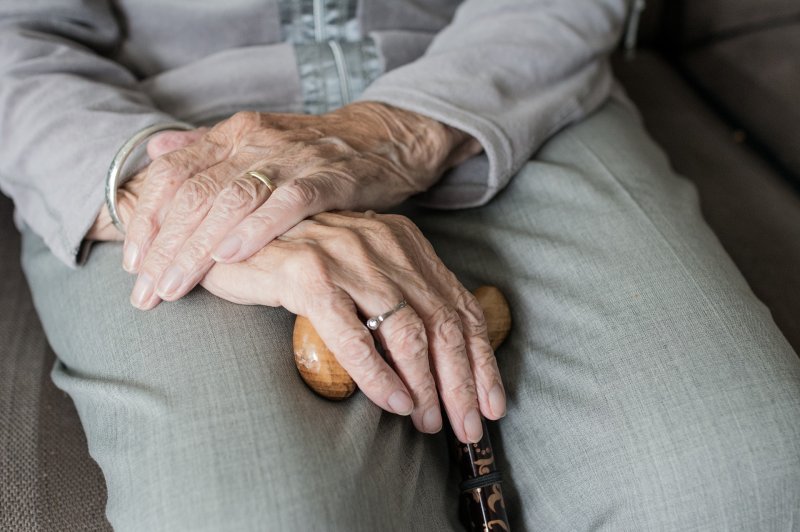Researchers think fecal transplants could help reverse cognitive decline in older people. Photo by Sabine van Erp/PIxabay
Oct. 2 (UPI) -- New research suggests fecal transplants could one day be used to reverse the cognitive decline that comes with aging.
When researchers performed fecal transplants from older to younger mice, they found the recipients suffered declines in spatial learning and memory. Scientists published the results of their experiments this week in the journal Microbiome.
The authors of the new study suggest a similar transplantation from young to old mice could potentially reverse the cognitive decline.
"Aging is an inevitable process that starts immediately after birth and ultimately leads to physical health problems as well as a decline in psychological well-being and cognitive function," study co-author David Vauzour said in a news release.
"Research has shown that the aging process may be linked with age-related changes in our gut microbiota," said Vauzour, senior research fellow at the University of East Anglia in Britain.
Scientists wanted to measure the effects of microbiome changes on anxiety, exploratory behavior and memory in mice. Researchers were able to trigger marked changes in the microbiomes of young mice by performing fecal transplants from older mice.
The transplants had no impact on anxiety levels, exploratory behavior or locomotion, but maze tests showed the microbiome changes did impair the spatial learning and memory of young mice.
Scientists also measured corresponding shifts in the expression of proteins liked with synaptic plasticity and neuro-transmission.
"The procedure had an impact on the expression of proteins involved in key functions of the hippocampus -- an important part of the brain that has a vital role in a variety of functions including memory, learning but also in spatial navigation and emotional behavior and mood," Vauzour said. "In short, the young mice began to behave like older mice, in terms of their cognitive function."
Scientists have yet to perform fecal transplants from young mice to old mice, but they are hopeful that they will have a reverse effect.
"While it remains to be seen whether transplantation from very young donors can restore cognitive function in aged recipients, the findings demonstrate that age-related shifts in the gut microbiome can alter components of the central nervous system," said study co-author Claudio Nicoletti.
"This work highlights the importance of the gut-brain axis in aging and provides a strong rationale to devise therapies aiming to restore a young-like microbiota to improve cognitive functions and quality of life in the elderly," said Nicoletti, professor at the University of Florence in Italy.















